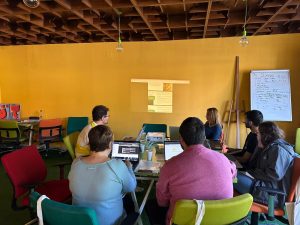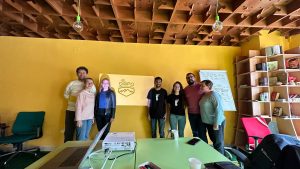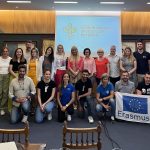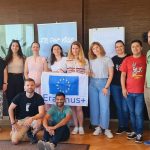During 04 – 07.05.2023, Scout Society Association and its partners, Innovative Education Center (Austria), Hodina H (Czech Republic), L’Orma (Italy), and La Hoya (Spain), met in Targu-Jiu, in the framework of the project DiSPO (Digital Outdoor Sports) project, funded by the European Union.
The project aims to motivate and involve young people in outdoor sports through NFE (Educational Experiences in Nature) activities. In the context of digitalization, the DiSPO project aims to minimize the negative impact that young people spend in front of the screens and reconnect young people with nature using digital tools.

DiSPO aims to involve 1000 young people in nature-based sports activities and to reconnect them with nature, to create networks between different stakeholders in 5 local communities across the EU, and to determine 50 sports practitioners in these communities to adopt the use of digital tools designed according to young people’s tendencies, interests, and lifestyles.
Throughout the project duration, there will be 25 outdoor sports activities redesigned using digital tools in order to increase the positive impact of digitalization by promoting and attracting young people to outdoor activities and reconnecting them with nature.
In the context of the Covid-19 pandemic, young people have started to spend more time in front of the screens and as a result, since then, until nowadays, they have benefited from fewer opportunities to engage in sports activities. The DiSPO project addresses this problem at the European level by developing a strategy and connecting with young people’s parents who do not have access to sports activities.
During the meeting in Targu Jiu, DiSPO team members discussed strategies and actions to achieve the project’s objectives and developed a detailed action plan to involve as many young people as possible in outdoor sports activities.
Funded by the European Union, the views and opinions expressed are those of the author(s) and do not necessarily reflect the views and opinions of the European Union or the European Agency for Education and Culture (EACEA). Neither the European Union nor the EACEA can be held responsible for them. 


